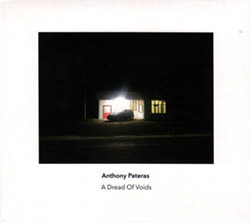
Two works written for a group of Australian performers living in Berlin--Jon Heilbron, Rebecca Lane, Jess Aszodi & Sam Dunscombe--by Australian composer and pianist Anthony Pateras, A Dread Of Voids developed for a residency at the Archipel Festival in Geneva after enduring a pandemic quarantine; and Patterned Language, composed for the Astra Chamber Music Society.
In Stock
Quantity in Basket: None
Log In to use our Wish List
Shipping Weight: 3.00 units
EU & UK Customers:
Discogs.com can handle your VAT payments
So please order through Discogs
Sample The Album:
Lizzy Welsh-violin
Erkki Veltheim-violin
Chloe Sobek-double bass
Alexander Garsden-guitar
Anthony Pateras-piano, conductor, celeste, sines
Jess Aszodi-voice
Jon Heilbron-double bass
Sam Dunscombe-bass clarinet
Rebecca Lane-bass flute
Click an artist name above to see in-stock items for that artist.
Label: Another Timbre
Catalog ID: at214
Squidco Product Code: 33458
Format: CD
Condition: New
Released: 2023
Country: UK
Packaging: Cardboard Gatefold
Track 1 recorded at Church of All Nations, in Naarm/Melbourne, Australia, on November 5th, 2022, by Anthony Pateras.
Track 2 recorded at studioboerne45, in Berlin, Germany, on August 31st, 2021, by Sam Dunscombe.
Another Timbre Interview with Anthony Pateras
Firstly can you tell us a bit about yourself and your background?
I was born to Macedonian immigrants from Northern Greece in Naarm/Melbourne in the late 70s. My grandfather came to Australia to seek a better life for his family to escape the poverty of that region in the late 40s, and they all arrived by boat, from villages ruined by civil war, in the early 1950s. I saw this poverty first hand, during the only time I met my grandmother when I visited her in the European winter of 1986/87, and it was brutal.
Most of my early musical engagement was with the music at village dances & picnics in Australia - monthly events where people would gather and talk about the old country. In retrospect, the spectrum of whatever the band played depended on the nationalist tendencies of whoever was paying them. Sometimes, they would play a lot of Greek music, and not much Macedonian music. Other times, it would be the reverse. There was always heated debate between the people who accepted, to use the current geo-political parlance, "southern" Macedonia's fate as Greek territory after the Balkan Wars of 1913, and those who believed it was extension of the territory now known as North Macedonia.
Personally, I grew up with these politics, but have ultimately rejected them and with that, any associated identity. I recognise that I'm basically a suburban music nerd who has made a life outside of that bickering and diasporic posturing, which I figure is precisely what my grandfather wanted to leave behind. I do feel very lucky to have had those early musical experiences though. Hearing that dance music live at an early age, alongside LPs of Vaska Ilieva, Rembetika, Bulgarian choral music, Pece Atanasovski, Mikis Theodorakis, also seeing the Macedonian Women's Choir which was my sister was in; this Balkan melting pot shaped my understanding of rhythm and harmony forever.
Through all of this, I had been studying classical piano since I was about 4 or 5. When I started studying Schoenberg and Stravinsky in high school, especially the latter, it immediately made a lot of sense; the expanding and contracting rhythmic structures, the modal polytonality, the intricacy and energy. I was also into 80s hip hop, metal, indie rock, 80s coin-op soundtracks like Marble Madness and R-Type, all things that would probably be considered very cheesy now. I always say though, it was seeing the group Machine For Making Sense at LaTrobe University when I was 18 that changed everything. That concert synthesised all of my interests and gave me an "in" to something which would drive me until now, 25 years later.
From that point, I soon started two life-changing projects: an electro-acoustic duo with Robin Fox and a prepared instrumental trio called Pateras/Baxter/Brown. While studying from 1997-2008, I was organising concerts in Melbourne, booking my bands in Europe while writing chamber pieces simultaneously. It was when Melbourne was still cheap to live, the community was creatively charged and it was a glorious time to be a musician in the city.
After I got my PhD, Cat Hope asked me to fill in for her at WAAPA in Perth; I taught one semester, and quickly decided that it wasn't for me. Instead, I started a piano grind-core band called PIVIXKI around the same time as forming Thymolphthalein to do the New Jazz Meeting in Baden-Baden, which was wild for me because I was in love with that Penderecki/Don Cherry record Actions at the time. Since then, I've dedicated 100% of my time to composing and performing experimental music in some form or another, with a very brief stint in wine-making, which lasted about a week.
Can you tell us about the two pieces on the CD: when did you write them, and in what contexts?
Before the pandemic, I had a residency at La Becque near Vevey. While there, I met Marie Jeanson, who co-runs this amazing festival in Geneva called Archipel. She invited me to do a three night residency, featuring solos I'd written for my friends Jon Heilbron, Rebecca Lane, Jess Aszodi & Sam Dunscombe, who significantly, are all from Naarm/Melbourne but live in Berlin. For the last concert, she asked me to write a quintet for all of us, and that piece is A Dread Of Voids.
I don't know if you know, but Australia closed its borders entirely during the pandemic. No one was allowed in or out, unless you got a travel exemption for special circumstances. I had already left once in 2020 for both a commission from the City of Modena called Syncopes and a concert at Wien Modern, which I was able to convince the government were imperative to leave for so I could survive. On the way back from Vienna however, the woman at the ticketing counter in Vienna printed out my border pass, tore it up in front of me, told me to go to a desk which no one was attending and wait. After a while waiting there with no one coming, I clocked I was marooned in Europe without a flight home.
I secured a seat to Perth four days later, then was locked in a hotel room for two weeks on arrival, across the road from a techno club (Perth did not have lockdowns). I eventually made it home, but this was all not an experience I wanted to repeat anytime soon, so I took a long break from music; about 4 months. After I'd recovered from what now I'm pretty sure was a mild version of PTSD, I managed to start writing Voids, and found that in my absence, my music had gotten a lot quieter.
More and more, my composing comes out of playing; working at the piano and listening. Composing-wise, I used to be involved with a mixture of post-Webern organisational strategies, Xenakian orchestration and Feldman's rhythm and repetition. Through writing quite a few open works and a series of electro-acoustic solos during the 2010s, I feel I'm much more receptive to my own instincts now, whereas maybe before, my strategies were tied more to what I learnt in the academy. Basically, now I have more confidence in what I find at the keys, just working with my ear.
So for Voids, I found myself attracted to the same four notes every day at morning practise. Just very quietly playing this collection in different octaves with different permutations. Eventually I figured out I liked playing them twice, with a different rhythm the second time around. This diptych idea was also assumed in the form: about half way through, I transpose the collection up a fourth and increase the tempo. I didn't even know I was able to leave Australia before I finished the piece, but eventually I got the approval to leave, and immediately started rehearsing with everyone when I made it back to Berlin. We then we took the train down to Geneva a few days later and premiered it to about 15 people, all in masks of course.
Afterwards I stayed on in Europe for work, then had to do hotel quarantine a second time on returning months later, this time in Melbourne. This happened to coincide with the first earthquake the city has experienced since the 1800s, and I was stuck in a hotel room on the 17th floor while the building shook. Given I had recently moved to the countryside, where this kind of thing was avoidable as there are no buildings above two floors, I couldn't help feeling this was fairly bad luck. Thus, the whole process around A Dread Of Voids is bookended by two stints of hotel quarantine, compliments of the Australian Border Force.
By comparison, Patterned Language is a fairly boring story! I want to say though that it was written for the Astra Chamber Music Society, who have a community choir which I used to sing in, and I had some heavy listening experiences with them in the late 90s. Notably, hearing Helen Gifford's Choral Scenes, Poulenc's La Voix Humaine, Milhaud's La Mort du Tyran, and also lots of Keith Humble's works for instruments and electronics, especially KAL IDA'S COPE written for the trombonist Simone de Haan.
Patterned Language feels more traditional to me out of the two pieces on the CD, although to other ears, it may be the inverse. Again, I'm working with limited pitch material, but within a distinct set of performative rules that trigger/mute various actions and events. Also, it was basically written within a week, whereas Voids took around three months. This is not to say it's slapdash, but it does have a certain vitality that Voids doesn't. Also, it's a live recording, whereas Voids was recorded by Sam Dunscombe at Alexander Frangenheim's studio in Berlin. That makes this a satisfying release for me; to comparatively listen to these two different approaches of documentation and still not be able to tell which works better.
Both pieces are written for groups of friends, which is where I find the most rewarding processes these days. That could change, but I do find the personal connection and learning attained through the kinds of collaborations heard here manifest in the best kind of music-making, at least for me.
Artist Biographies
• Show Bio for Lizzy Welsh "Lizzy Welsh is internationally renowned as a performer of early music, new music and experimental improvisation, principally on the baroque violin and modern violin. As a baroque violinist, Lizzy's "characterful virtuosity" has cemented her as one of Australia's leading early music performers, who has appeared with Orchestra of the Antipodes, Freitags-Akademien (Berlin, Germany), Latitude 37, Van Diemen's Band, The Night Watch (Wellington, NZ), the Australian Romantic and Classical Orchestra, Accademia Arcadia, La Compañia, Ludovico's Band, Consort Eclectus and Harken Well. Lizzy has been invited to perform at the Bendigo International Festival of Exploratory Music, the Adelaide Festival, the Melbourne International Arts Festival, the Melbourne Jazz Festival, the University of California San Diego's Springfest, Darmstadt Internationale Ferienkurse für Neue Musik, London Jazz Festival, Jazztopad Wrocław, Sacrum Profanum Festival (Krakow), Jazzfest Berlin, Sacred Realism (Berlin), Shanghai International Arts Festival, Shanghai New Music Week, Metropolis New Music Festival, and Wangaratta Jazz Festival. Lizzy has presented scores of Australian and World premieres with ensembles including the Argonaut Ensemble, Golden Fur New Music Project, ELISION Ensemble, Chamber Made, and the Australian Art Orchestra. Lizzy is Artistic Director of Australia's leading new music string quartet, the Argonaut Quartet. An advocate for creating new music for early instruments, Lizzy has a Doctor of Musical Arts in this field, and has developed one of the world's largest repertoires of new music for the baroque violin and viola d'amore, premiering many of these works at leading international festivals including the Darmstadt Internationale Ferienkurse für Neue Musik (Germany) and Sacrum Profanum Festival (Poland). Lizzy has curated and produced performances for organisations including Arts House, the Bendigo International Festival of Exploratory Music, the Festival of Live Art, and the Metropolis New Music Festival. As a composer, Lizzy implements elements of improvisation and organised randomness in spectral and experimental palettes." ^ Hide Bio for Lizzy Welsh • Show Bio for Erkki Veltheim "Erkki Veltheim (b. 1976 Finland) is an Australian composer, improviser, performer and interdisciplinary artist. Erkki has been commissioned by the Adelaide Festival, Vivid Festival, Australian Art Orchestra and Soundstream Collective, and his pieces have been performed by groups such as the London Sinfonietta, Melbourne Symphony Orchestra and Sydney Symphony Orchestra. Recent projects include Gawanjalkmi (Song for the fallen) for voices and large ensemble (2015), in collaboration with Gurrumul and Jonno Yunupingu, commissioned by Skinnyfish and Gone West, Belgium; audiovisual performance work Another Other (2014/2016), with co-creators Anthony Pateras, Natasha Anderson and Sabina Maselli, commissioned by Chamber Made Opera; and audiovisual installation Fusion of Tongues (2015), commissioned by Punctum and La Maison Folie, Belgium, for 'Mons 2015 - European Capital of Culture' program. Erkki has performed with the Australian Art Orchestra, Australian Chamber Orchestra, Berlin Philharmonic Orchestra, Elision and Ensemble Modern, and has featured as a soloist with the London Sinfonietta, Australian Opera and Melbourne Symphony Orchestra. He has long-standing collaborations with indigenous musician Gurrumul, improvising trumpet virtuoso Scott Tinkler, and composer-pianist Anthony Pateras. Erkki is a recipient of a 2013 Myer Creative Fellowship, and in 2014 was appointed Artistic Associate of Chamber Made Opera. He holds a Master of Arts, for which he researched connections between music and ritual." ^ Hide Bio for Erkki Veltheim • Show Bio for Chloe Sobek "Chloë Sobek is a composer-performer based in Naarm, Australia. Her work is currently centred on the development of a post-anthropocentric sonic practice that encompasses a diversity of enquiry from acoustemology through to noise music. She is invested in what creative practice can do to deconstruct and reshape the way we conceptualise our collective futures. Chloë's practice is built around the Renaissance precursor to the double bass, the violone. Her creative process couples maximalist and musique concrète sensibilities such as audio-montage and electronic processing, with a handling of sound as a senate object, unlinked and undefined by its source. Chloë has won the 2022 Allan Zavod Performers' Award, the Monash Jazz and Improvisation postgraduate award (2021), the Marten Bequest Scholarship (2020) and the RMIT Vice Chancellor's Award (2019). Chloë has also been awarded funding from the Australia Council of the Arts, the City of Melbourne, the Ian Potter Cultural Trust and was a scholarship student at the Australian National Academy of Music. She has presented research and work at the Hochschule für Musik und Theater Hamburg, at TENOR2022 and is co-editor of Recent Networked Music: Performing in and Composing for the Ether issue of Contemporary Music Review (Taylor and Francis). Recent composition and performance highlights include, with the support of the Australia Council of the Arts, the commission to write, record and perform a work for Outlier (Lizzy Welsh and Chloë Sobek) and Tilman Robinson at Melbourne Recital Centre and The Theatre Royal (2021). With the support of the Marten Bequest, the commission to compose and perform a contemporary work for violone (2020) and with the support of the Castlemaine State Festival, the commission to compose and perform an animated score for Outlier (2019)." ^ Hide Bio for Chloe Sobek • Show Bio for Alexander Garsden "Alexander Garsden is a composer, guitarist and electroacoustic musician, working across multiple exploratory musical disciplines. He is based in regional Victoria, near Naarm (Melbourne), Australia. His notated music has been commissioned by Sydney Symphony Orchestra, Melbourne Symphony Orchestra, Speak Percussion, Michael Kieran Harvey, and Jessica Aszodi, amongst others. His research and compositional output primarily relates to novel approaches to frequency, inharmonicity, and extended just intonation. His recorded collaborations include with Tetuzi Akiyama (Japan), Ida Duelund Hansen (Denmark), Julia Reidy, David Stackenäs (Sweden), and Quiver. He has performed with Oren Ambarchi, Natasha Anderson, Jim Denley, Rohan Drape, Golden Fur, Radu Malfatti (Austria), Kim Myhr (Norway), Joe Talia, Lizzy Welsh, Erkki Veltheim, and many of Melbourne's underground and folk acts including Ned Collette, Yuko Kono, Francis Plagne, and Grand Salvo. From 2014 to 2019 Alexander was co-director of the INLAND Concert Series, which held over 50 concerts across Australia, showcasing artists whose work spans notated, improvised, electroacoustic, popular and interdisciplinary practices. As an educator, he has taught through the RMIT and the University of Melbourne." ^ Hide Bio for Alexander Garsden • Show Bio for Anthony Pateras "Anthony Pateras is a composer and pianist. His works have been performed by The BBC Symphony, Los Angeles Philharmonic, Toronto Symphony, Australian Chamber Orchestra, Brett Dean, Jessica Aszodi as well as a large body of work for percussion by Synergy, Speak Percussion, Slagwerkgroep Den Haag, Vanessa Tomlinson, Diego Espinosa and the percussionists of the Basel Symphony. Pateras is the producer/songwriter for tetema, a quartet with vocalist Mike Patton and frequent collaborators Will Guthrie (drums) and Erkki Veltheim (violin). Anthony has also performed concerts with Stephen O'Malley, Han Bennink, Paul Lovens, The Necks, eRikM, Valerio Tricoli, Anthony Burr, and has a working trio with Veltheim and trumpet virtuoso Scott Tinkler entitled North of North. He has been commissioned by Radio France, SWR2 Baden-Baden, Melbourne Symphony, Kitchen Orchestra Stavanger, Muzzix Lille, Richard Tognetti, Lampo Chicago, Jérôme Noetinger, the National Gallery of Lithuania and Ensemble Hiatus through the French Ministry of Culture. Pateras was the composer-in-residence at the Australian National Academy of Music in 2010, was nominated twice for the UNESCO Rostrum of Composers (2004, 2011) and is a recipient of the 2014 Myer Creative Fellowship. Anthony has released over 30 albums on Tzadik, Editions Mego, Ipecac and on his own Immediata label. He holds a PhD in composition from Monash University, which explores intersections between composition, improvisation and electro-acoustic music." ^ Hide Bio for Anthony Pateras • Show Bio for Jess Aszodi "Jess Aszodi is an artist, researcher, educator and performer. Her mezzo voice has been praised the world over, for its unusual range, both in terms of colour and pitch, which makes it possible to perform repertoire across genres and voice types. She creates bespoke techniques and concepts from project to project and has built up a truly idiosyncratic set of embodied knowledges, from cycling while singing, to choreographically affected song, a unique teaching and embodiment methodology and a not small number of extremely extended vocal techniques. Her favourite thing is challenge. Jess' performance work crosses between opera, experimental music, improvisation, composition, and music theatre. She has performed as a soloist with opera houses and ensembles around the world including the London Sinfonietta, Wiener Volksoper, Nederlands Reisoper, Hamburg Staatsoper, Ensemble Musikfabrik, Melbourne, Sydney and Adelaide Symphony Orchestras, ICE, Pinchgut Opera, the Tirolean Symphony Orchestra, Victorian Opera, Sydney Chamber Opera, and the San Diego and Chicago Symphony Orchestras (chamber series). Her Festival appearances include the Melbourne, Sydney and Adelaide Festivals, Darmstadt, Aldeburgh, Tectonics, Tanglewood, Klangspuren, Beethoven Festwoche, Resonant Bodies, Vivid Sydney, Aspen and BIFEM (where she was a long-time part of the curatorial team). A passionate exponent of new work she has performed important premieres by collaborators Liza Lim, Augusta Read Thomas, Dai Fujkura, Anthony Pateras, Jessie Marino, Cathy Milliken, Jenna Lyle, Sam Dunscombe, and Laura Bowler. She has twice been nominated for the Australian Greenroom Awards as 'best female operatic performer' - in both the leading and supporting categories. Jess holds a Doctorate from the Queensland Conservatorium, and continues an artistic research and teaching practice focused on the materiality and politics of embodiment practices in the creation of new vocal performance. She has written articles for several books and journals and has a meaningful teaching practice that explores the bodily as well as theoretical applications of her research. She likes difficult stuff. And takes pleasure getting messy in the process of creating thick, touching, thinking, pieces." ^ Hide Bio for Jess Aszodi • Show Bio for Jon Heilbron "Jon Heilbron is an Australian Double Bass player, improviser and composer, working within the areas of contemporary classical, improvised and experimental music. Jon has performed both as a soloist and with various groups in Australia, Germany, the United Kingdom, Argentina, Denmark, Israel, Russia, Norway, Austria and Singapore. As an interpreter of contemporary music, he has performed with Klangforum Wien (Austria), Apartment House (UK), Kammerensemble Neue Musik (Germany), An Assembly (UK), Ensemble Soundinitiative (France) Konzert Minimal (Germany) and Ensemble Schallfeld (Austria). He has presented music at festivals including the Darmstädter Ferienkürse (Germany), Archipel Geneva (Switzerland), Wien Modern (Austria), Manifeste Paris (France), the Impuls festival, Graz (Austria), The Bendigo International Festival of Exploratory Music (Australia), SpinaFest in St. Petersburg (Russia) and the Multiversal Festival in Copenhagen (Denmark). He is active within improvised and experimental music with his collaborative groups Ellipsis, Arches, DRUM and doubleFRAU, and is the founder of the Phonetic Orchestra, an ensemble made up of some of Melbourne's most innovative emerging Improvisers, composers and performers." ^ Hide Bio for Jon Heilbron • Show Bio for Sam Dunscombe "Sam Dunscombe is a performer, composer, sound artist, and audio engineer. Sam is interested in the multi-dimensional perception of time, which has led to explorations in spectralism, just-intonation, improvisation, the performance of complex-notated repertoire, field recording, audio engineering, and live electronic performance. Sam has performed at major festivals and concert series around the world, including conducting the opening night concert of the 2019 MaerzMusik festival in Berlin, being an artist-in-residence at Ilan Volkov's Tectonics Festival in Tel Aviv, presenting a three day performance and sound installation at the Tokyo Experimental Festival, and many others. Sam is an avid field recordist: in 2021, Outside Ludlow / Desert Disco (Black Truffle) combined field recordings with audio taken from scraps of 1/4″ tape found tangled around a cactus in the Mojave Desert. A second album, Two Forests / Oceanic, uses field recordings and rational tuning practice to reimagine the music used for psychedelic-assisted psychotherapy sessions, and is due for release on Nov 14, 2023 (also on Black Truffle). Alongside these hybrid works, Sam is also engaged in more traditional acoustic ecology practice, in particularl an ongoing ultra-large-scale field recording work "California Grid." In June 2022, Sam released Horatiu Radulescu: Plasmatic Works Vol. 1 on Mode Records. This album focusses on Radulescu's early spectral works for winds and electronics, and will be followed by two more records in this series. Sam was awarded a Doctor of Musical Arts from UC San Diego in 2018, with a thesis exploring Radulescu's clarinet works, and has worked as the archivist to his estate since 2018. With generous funding from Musikfonds and the Berlin Senate, Sam is currently developing new methods for sound synthesis based on Radulescu's spectral techniques, "Mass Plasma Synthesis." Preliminary studies in this methodology can be heard on Bandcamp. Sam is a member of several musical groups, including Berlin's Harmonic Space Orchestra, the Australian performer-composer trio Golden Fur (together with James Rushford and Judith Hamann), Oren Ambarchi's Carpe Diem, and duo projects with Michiko Ogawa, Rebecca Lane, Julia Reidy, and others." ^ Hide Bio for Sam Dunscombe • Show Bio for Rebecca Lane Rebecca Lane is a flute and bass flute performer from Melbourne who is currently based in Berlin. ^ Hide Bio for Rebecca Lane
7/1/2025
Have a better biography or biography source? Please Contact Us so that we can update this biography.
7/1/2025
Have a better biography or biography source? Please Contact Us so that we can update this biography.
7/1/2025
Have a better biography or biography source? Please Contact Us so that we can update this biography.
7/1/2025
Have a better biography or biography source? Please Contact Us so that we can update this biography.
7/1/2025
Have a better biography or biography source? Please Contact Us so that we can update this biography.
7/1/2025
Have a better biography or biography source? Please Contact Us so that we can update this biography.
7/1/2025
Have a better biography or biography source? Please Contact Us so that we can update this biography.
7/1/2025
Have a better biography or biography source? Please Contact Us so that we can update this biography.
Have a better biography or biography source? Please Contact Us so that we can update this biography.
Track Listing:
1. Patterned Language 20:06
2. A Dread Of Voids 32:50
Compositional Forms
Chamber Rock
Unusual Vocal Forms
Australian Improvisers, Composers and Experimenters
European Improvisation, Composition and Experimental Forms
Quintet Recordings
Staff Picks & Recommended Items
New in Compositional Music
Search for other titles on the label:
Another Timbre.


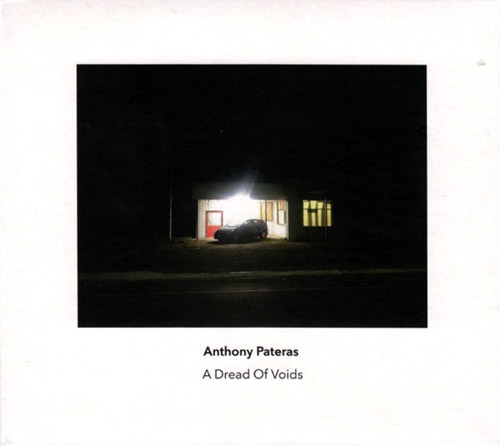




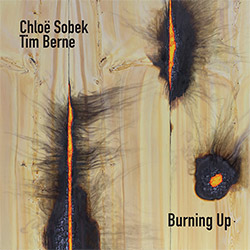


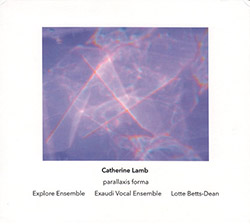

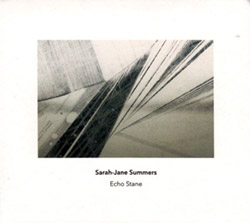
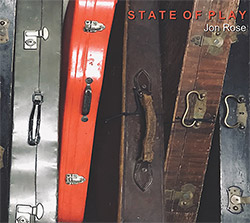

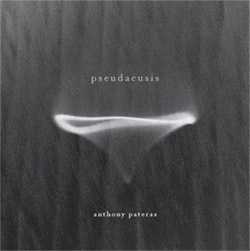
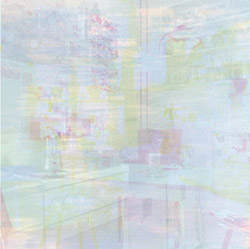
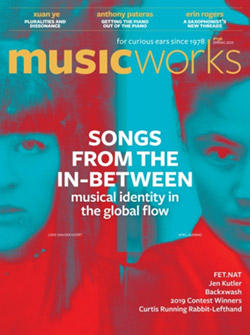

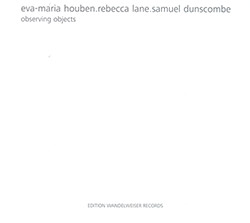

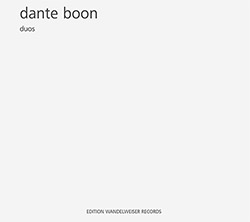
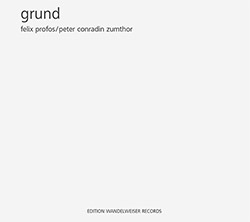
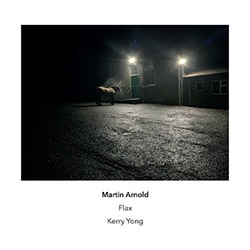
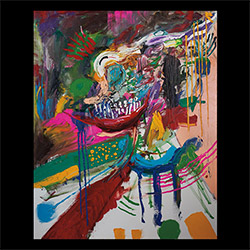

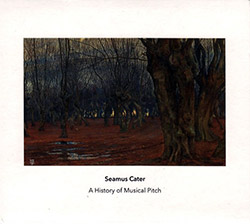
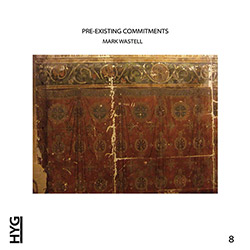











![Deupree, Jerome / Sylvie Courvoisier / Lester St. Louis / Joe Morris: Canyon [2 CDs]](https://www.teuthida.com/productImages/misc4/36404.jpg)


![Eternities: Rides Again [CASSETTE]](https://www.teuthida.com/productImages/misc4/36247.jpg)

![Lopez, Francisco: Untitled (2021-2022) [2 CDs]](https://www.teuthida.com/productImages/misc4/36438.jpg)




![Eventless Plot | Haarvol: The Subliminal Paths [CASSETTE + DOWNLOAD]](https://www.teuthida.com/productImages/misc4/36232.jpg)












![Eventless Plot | Francesco Covarino: Methexis [CASSETTE + DOWNLOAD]](https://www.teuthida.com/productImages/misc4/36231.jpg)



![Das B (Mazen Kerbaj / Mike Majkowski / Magda Mayas / Tony Buck): Love [VINYL]](https://www.teuthida.com/productImages/misc4/36329.jpg)



![Hemphill Stringtet, The: Plays the Music of Julius Hemphill [VINYL]](https://www.teuthida.com/productImages/misc4/36409.jpg)



![Halvorson, Mary Septet: Illusionary Sea [2 LPS]](https://www.teuthida.com/productImages/misc4/17952.jpg)






![Money : Money 2 [2 CDs]](https://www.teuthida.com/productImages/misc4/35894.jpg)




![Klinga, Erik: Elusive Shimmer [VINYL]](https://www.teuthida.com/productImages/misc4/36258.jpg)
![CHANGES TO blind (Phil Zampino): Volume 9 - I Wave on a Fine Vile Mist [CD + DOWNLOAD]](https://www.teuthida.com/productImages/misc4/36061.jpg)

![Wallmart / Rubbish: Asset Protection [split CD]](https://www.teuthida.com/productImages/misc4/35900.jpg)


![+Dog+: The Family Music Book Vol. 5 [2 CDs]](https://www.teuthida.com/productImages/misc4/35897.jpg)
![Kuvveti, Deli : Kuslar Soyledi [CASSETTE w/ DOWNLOAD]](https://www.teuthida.com/productImages/misc4/36107.jpg)

![Nakayama, Tetsuya: Edo Wan [CASSETTE w/ DOWNLOAD]](https://www.teuthida.com/productImages/misc4/36105.jpg)




![Yiyuan, Liang / Li Daiguo: Sonic Talismans [VINYL]](https://www.teuthida.com/productImages/misc4/35957.jpg)
![Brown, Dan / Dan Reynolds: Live At The Grange Hall [unauthorized][CASSETTE]](https://www.teuthida.com/productImages/misc4/36245.jpg)






![Palestine, Charlemagne / Seppe Gebruers: Beyondddddd The Notessssss [VINYL]](https://www.teuthida.com/productImages/misc4/36206.jpg)
![Palestine, Charlemagne / Seppe Gebruers: Beyondddddd The Notessssss [NEON GREEN VINYL]](https://www.teuthida.com/productImages/misc4/36207.jpg)

![Laubrock, Ingrid: Purposing The Air [2 CDs]](https://www.teuthida.com/productImages/misc4/35639.jpg)

![Yoko, Ono / The Great Learning Orchestra: Selected Recordings From Grapefruit [2 CDs]](https://www.teuthida.com/productImages/misc4/35841.jpg)









![Zorn, John / JACK Quartet: The Complete String Quartets [2 CDs]](https://www.teuthida.com/productImages/misc4/35609.jpg)

![Lonsdale, Eden: Dawnings [2 CDs]](https://www.teuthida.com/productImages/misc4/35480.jpg)



![Sorry For Laughing (G. Whitlow / M. Bates / Dave-Id / E. Ka-Spel): Rain Flowers [2 CDS]](https://www.teuthida.com/productImages/misc4/35985.jpg)

![Rolando, Tommaso / Andy Moor : Biscotti [CASSETTE w/ DOWNLOADS]](https://www.teuthida.com/productImages/misc4/36106.jpg)


![Electric Bird Noise / Derek Roddy: 8-10-22 [CD EP]](https://www.teuthida.com/productImages/misc4/35970.jpg)








![Elephant9 : Mythical River [VINYL]](https://www.teuthida.com/productImages/misc4/34624.jpg)



![Elephant9 with Terje Rypdal: Catching Fire [VINYL 2 LPs]](https://www.teuthida.com/productImages/misc4/35355.jpg)
![Deerlady (Obomsawin, Mali / Magdalena Abrego): Greatest Hits [VINYL]](https://www.teuthida.com/productImages/misc4/34876.jpg)







![Surplus 1980: Illusion of Consistency [CD]](https://www.teuthida.com/productImages/misc4/35069.jpg)
![Staiano, Moe: Away Towards the Light [VINYL + DOWNLOAD]](https://www.teuthida.com/productImages/misc4/35037.jpg)
![Coley, Byron: Dating Tips for Touring Bands [VINYL]](https://www.teuthida.com/productImages/misc4/17906.jpg)

![Lost Kisses: My Life is Sad & Funny [DVD]](https://www.teuthida.com/productImages/misc4/lostKissesDVD.jpg)